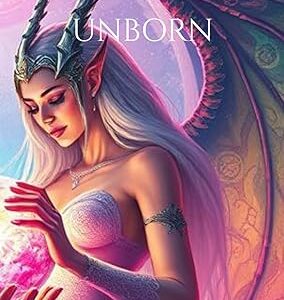 Education
Education
A Young Man’s Quest for Identity in a Fractured World
- by enoil
In a world increasingly defined by its disconnection and chaos, the journey of a young man seeking identity becomes not just personal but profoundly universal. Every generation faces its crises, but today’s youth confront a unique set of challenges—fragmented social structures, rapid technological change, and cultural dissonance. Amid these shifting realities, many young people find themselves grappling with the core question: “Who am I?” The pursuit of this answer is rarely straightforward, as it often requires confronting societal expectations, historical wounds, and internal doubts. This article explores the story of one such quest for identity and meaning, a journey mirrored in powerful literary works like the , which serve as both compass and mirror in the chaos of self-discovery.
Fragmentation and the Modern Psyche
Contemporary society is marked by fragmentation on nearly every level—political, social, familial, and even internal. The digital age promises connection but often delivers alienation. Social media, while appearing to unite, encourages the curation of personas rather than the cultivation of identity. For young men in particular, traditional definitions of masculinity no longer fit, yet new models are vague and inconsistent. This psychological rift makes it difficult to form a coherent self. Instead of walking a clear path, the modern young man stumbles through conflicting ideologies and fragmented truths.
This fractured experience is not limited to personal emotions; it reflects deeper systemic cracks. Economic instability, environmental degradation, and the erosion of trusted institutions amplify the uncertainty of youth. In this climate, the search for identity is not just a luxury—it becomes a necessity for survival.
The Search for Meaning in a Noisy World
Amid this background, the young man’s journey becomes a heroic endeavor. He begins to ask deeper questions: What do I believe in? What matters? Where do I belong? These questions are not easily answered through societal norms or familial expectations anymore. They require a turning inward—a dive into memory, philosophy, literature, and sometimes, pain. For many, this journey starts with a disillusionment, a moment when old narratives collapse and no longer provide meaning. That collapse, painful as it is, often becomes the threshold into a deeper exploration of self.
Literature as a Mirror and Guide
Throughout history, literature has served as both mirror and guide for individuals in search of identity. Classic coming-of-age novels, epic quests, and philosophical dialogues all explore themes of selfhood and purpose. These stories, whether ancient or modern, offer frameworks through which young minds can process their inner turmoil.
One such modern literary work that resonates deeply in this context is the book Pawn to King’s End and their significance. It tells the story of a young man navigating a tumultuous inner and outer world, mirroring the psychological fragmentation experienced by many today. The metaphor of chess—a game of strategy, patience, and transformation—becomes a powerful symbol in the narrative. The protagonist begins his journey as a “pawn,” seemingly insignificant, pushed by forces beyond his control. But through a series of trials, introspections, and moments of revelation, he begins to see the possibility of evolution—not just within the game, but within himself. The idea that a pawn can become a king captures the essence of the modern quest for identity: the realization that power and purpose can emerge from even the most humble beginnings, provided there is courage and clarity.
This literary journey is not just symbolic. It reflects real psychological processes. The stages the protagonist undergoes—confusion, rebellion, loss, insight, and transformation—are echoed in real-life struggles of countless young individuals today. Literature like this does not offer answers as much as it offers understanding, a space to see one’s struggle reflected and made meaningful.
The Role of Mentors and Guides
In any journey of self-discovery, mentors play a vital role. They may appear in the form of wise elders, authors, teachers, or even anonymous voices on forums and videos. Their presence helps contextualize the chaos, offering perspectives forged by experience. In stories and life, the guide doesn’t tell the hero who to become; instead, they ask the right questions or provide crucial tools. For many readers, authors like the one behind Pawn to King’s End serve this function—subtle, evocative, and transformative.
Mentors also remind the seeker that identity is not found in isolation. We are relational beings. Identity forms through dialogue—with others, with our past, and with the world. Even solitude, so necessary for reflection, becomes meaningful only when we return to others with our insights.
Culture, History, and Inherited Struggles
The young man’s quest is not undertaken in a vacuum. Cultural and historical forces shape the very questions he asks and the answers he considers possible. For those from marginalized or displaced communities, the search for identity is compounded by inherited trauma, lost languages, or fractured histories. In these cases, self-discovery becomes a form of resistance and reclamation.
In the book Pawn to King’s End there are echoes of this deeper historical consciousness. The protagonist not only battles personal demons but also confronts the legacy of broken systems and inherited beliefs. His transformation involves rejecting some parts of his heritage while embracing others more consciously. This mirrors the journey of many today, who are unlearning oppressive narratives and redefining what it means to belong to a culture or community.
The Inner Compass and Moral Clarity
Ultimately, the quest for identity leads to the development of an inner compass—a set of values and truths that ground the individual even in a chaotic world. This compass doesn’t arise overnight. It is forged through conflict, reflection, and failure. It allows the young man not only to understand who he is but also how he wishes to act in the world.
The final stage of the journey is not about reaching perfection but about accepting one’s complexities and contradictions. It’s about owning one’s narrative, choosing one’s battles, and walking with integrity. This is where the young man ceases to be a seeker and becomes a guide for others.
Conclusion
In a fractured world, the search for identity is an act of courage. It is a refusal to be defined by chaos, to succumb to cynicism, or to be reduced to stereotypes. It is a journey inward, but also a movement outward—toward community, purpose, and meaningful engagement with the world.
Books like Pawn to King’s End are not just stories; they are lifelines. They articulate the silent questions many are afraid to ask. They challenge, comfort, and illuminate the path. As young men continue to navigate this complex landscape, such stories will remain essential—reminding them that transformation is always possible, that from the smallest beginnings can come the greatest power, and that identity, while fragile, can be reclaimed, redefined, and honored.









